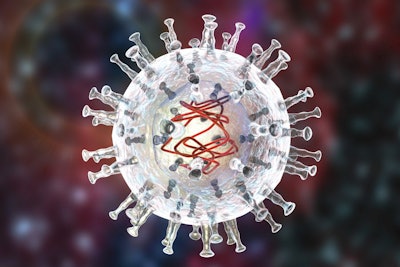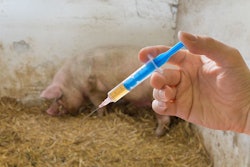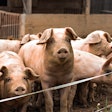
Detection marks the first time ASF has been detected in the Western hemisphere in 40 years
The U.S. Department of Agriculture (USDA) said on July 28 that it has confirmed African swine fever (ASF) in pigs in the Dominican Republic, marking the first time ASF has been detected in the Western hemisphere in 40 years.
USDA said its Foreign Animal Disease Diagnostic Laboratory made the confirmation in samples collected in pigs through an existing cooperative surveillance program.
“USDA’s Animal and Plant Health Inspection Service (APHIS) has numerous interlocking safeguards in place to prevent ASF from entering the United States,” the department said in a press release. “Pork and pork products from the Dominican Republic are currently prohibited entry as a result of existing classical swine fever restrictions. Additionally, the Department of Homeland Security’s Customs and Border Protection (CBP) is increasing inspections of flights from the Dominican Republic to ensure travelers do not bring prohibited products to the United States. CBP will also be ensuring that garbage from these airplanes are properly disposed of to prevent the transmission of ASF.”
USDA said it is offering continued testing support to the Dominican Republic and will consult with officials on additional steps or actions to support response and mitigation measures.
“We will also offer similar help to Haiti, which borders the Dominican Republic and is at high risk for ASF detections,” it said.
In a statement on its website, National Pork Producers Council (NPPC) chief veterinarian Liz Wagstrom thanked the USDA for the additional measures it is taking, and noted the following measures that should be taken by U.S. pork producers:
- Use caution when hosting on-farm visitors from an ASF-positive region of the world; follow downtime recommendations from USDA’s Plum Island Foreign Animal Disease Diagnostic Laboratory.
- Review your biosecurity protocols to ensure consistent practice of appropriate safeguards.
- Fill out the Foreign Animal Disease Preparation Checklist and enroll in the Secure Pork Supply program.
- Visit with your feed suppliers to discuss the origin of the feed ingredients they are using in your diets.
“The United States has significantly bolstered biosecurity to protect the U.S. swine herd since ASF broke in China nearly three years ago and began spreading to other parts of the world,” said Liz Wagstrom, chief veterinarian with the National Pork Producers Council. “We are thankful for steps taken by the USDA and U.S. Customs and Border Protection (CBP), including strengthened border inspection and the implementation of an active surveillance program designed to quickly detect and eradicate ASF. These measures are particularly important now that ASF has been detected in the Western hemisphere for the first time in approximately 40 years.”
View our continuing coverage of the African swine fever outbreak.


















